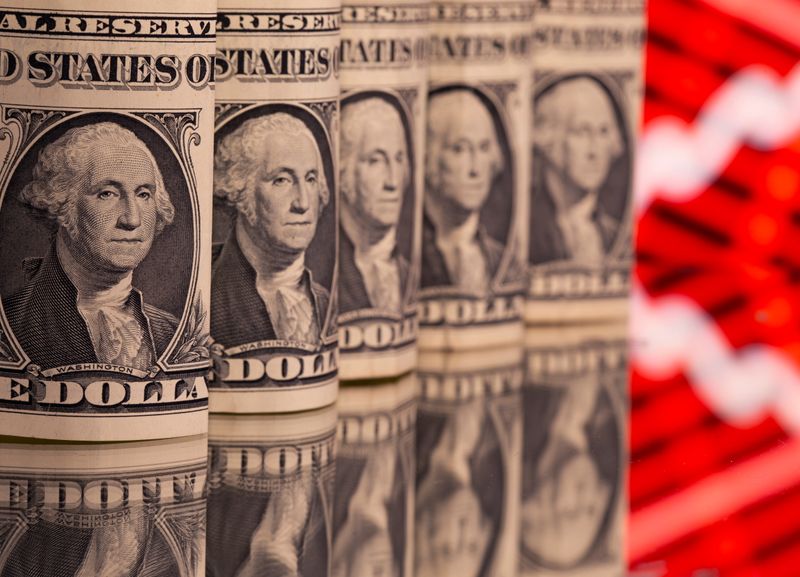By Tom Westbrook
SINGAPORE (Reuters) – The dollar traded near its highest levels of the year on Wednesday, after driving higher with U.S. yields and benefiting from investor nervousness about the Federal Reserve starting to withdraw policy support just as global growth headwinds gather.
The dollar rose broadly overnight to lift the dollar index to an 11-month high of 93.805. It was marginally below that level early in the Asia session at 92.728.
U.S. Treasury yields have surged – with benchmark 10-year rates up 25 basis points in five sessions to 1.5548% – as Fed tapering looms before the year’s end and as inflation starts to look stickier than first thought. [US/]
The Japanese yen, which is sensitive to U.S. yields as higher rates can draw flows from Japan, has fallen about 2% in five sessions and at 111.57 per dollar is not far from hitting its lowest level since February 2020.
The euro fell to a one-month low overnight and, last buying $1.1684, is also testing major support levels around its 2021 low of $1.1664 and its November 2020 low of $1.1602.
Along with the Fed’s hawkish tone, energy prices are surging and concerns are gathering about the growth outlook in China – now at risk both from a messy collapse at developer China Evergrande and rolling power outages that are hitting output.
“Compared to the unencumbered optimism at the start of the year, it is a twilight zone for markets as 2021 approaches its end,” Deutsche bank strategists said in note that upgraded forecasts on the dollar and recommended a bet against the euro.
“Persistently stagflationary dynamics – lower growth but a hawkish Fed – leave little room for a dollar downtrend,” they said.
Sterling copped a particular beating overnight as concern over the economic impact of a shortage of gas and a scramble for fuel pulled it 1.2% lower on the stronger dollar, its largest daily fall in more than a year. [GBP/]
The Australian and New Zealand dollars also suffered and the kiwi hit a one-month low. Central bank meetings loom next week in both countries and swaps pricing points to the Reserve Bank of New Zealand following Norges Bank and lifting rates.
“NZD/USD remains stuck around $0.7000, as the effect of the hawkish RBNZ is offset by increasing expectations of the Fed,” said Westpac analyst Imre Speizer.
The kiwi was last at $0.6947 and the Aussie at $0.7248. [AUD/]
Ahead on Wednesday, Japan’s ruling party votes for a new leader who will almost certainly become the country’s next prime minister.
European Central Bank (ECB) President Christine Lagarde, Fed Chair Jerome Powell, Bank of England Governor Andrew Bailey and Bank of Japan Governor Haruhiko Kuroda are panelists at an ECB forum.



